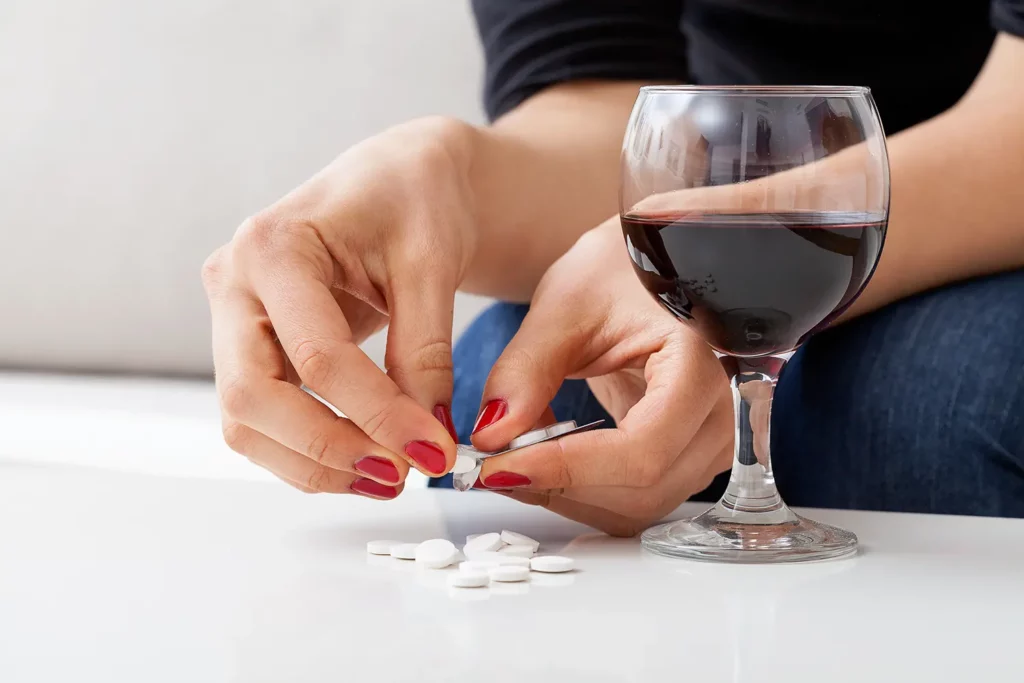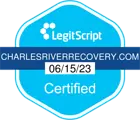What Painkillers Are Safe to Take With Alcohol?
Many common over-the-counter and prescription drugs cannot be taken with alcohol. These drugs are used to treat a broad range of conditions from allergies and diabetes to chronic pain and seizure disorders. But are any pain medications safe to take with alcohol? While the short answer is not really, there are many factors that people should consider when it comes to mixing alcohol and medications.
If you are struggling with a substance or an alcohol use disorder, Charles River Recovery can help. Please remember that getting help is only a matter of making a phone call or sending a text.
What Happens When You Mix Alcohol and Medication?
When alcohol and drugs are mixed, the effects range from mild symptoms such as upset stomach and dizziness to potentially fatal ones such as respiratory distress and cardiac arrest. When they are mixed, there are a few different ways that alcohol and drugs can affect each other.
Speed of Metabolization and Absorption
When a food or substance is metabolized, it goes through a series of chemical reactions that allow it to be used by the body. When taken with alcohol, a medication may be metabolized at a faster or slower rate than desired. This can increase or decrease the effectiveness of the drug, depending on how long it stays in your system. This means that you could feel the drug quicker if you’re drinking.
However, what’s more dangerous is that sometimes drinking causes the body to metabolize a drug slower. This can cause people to think that the drug hasn’t affected them, and as a result, they take more. This can lead to an overdose or acute poisoning.
Absorption occurs when a substance is transferred into the bloodstream from another part of the body such as the stomach, intestine, or colon. When alcohol is mixed with drugs, the body has a tendency to slow the elimination of alcohol. This could also raise blood alcohol levels and could mean that the effects of alcohol are prolonged and possibly increased.
Changes in Effectiveness
Alcohol has the potential to reduce or eliminate the usefulness (efficacy) of a drug. It can block certain chemical reactions in the body and cause others to go into overdrive. Alternatively, it may increase the effectiveness of the medication to the point where it becomes harmful to the body. Ultimately, if you are unsure whether a medication can be mixed with alcohol, it is best to ask your doctor.
How much a medication is affected by alcohol or vice versa is also determined by personal factors such as weight, state of health, what medications are being taken, and the timing of your most recent meal.
Alcohol and Painkillers
Painkillers can be bought over the counter or obtained with a prescription. There are several classes and types of painkillers as well as various off-label medications used to treat pain. Many of these have the potential for misuse. If you are having problems with substances, alcohol, or both, remember that help is available with just one phone call to Charles River Recovery.
Barbiturates
Barbiturates are a class of drug that falls into the larger category of sedative-hypnotics. They have many uses, though prescriptions for this class of drug have declined since the 1970s. They are still used in limited circumstances to treat pain and insomnia. They are more commonly used to treat seizure disorders and to help with pre-operation anxiety and sedation. They are also used to induce comas in medical emergencies and play a role in general anesthesia for surgeries.
Common barbiturates include phenobarbital, methohexital, butalbital, pentobarbital, and primidone. They are still found as a component in several prescription-level painkillers such as Esgic, also called Fioricet. Alcohol can amplify the effects of barbiturates and vice versa, so taking them with alcohol is not recommended.
Opioids
This is a class of drug derived from the opium poppy and related synthetic sources. Opioids are indicated for moderate to severe pain and are often used in the early stages after surgery. However, they come with a higher risk of misuse and dependence.
Common opioids are codeine, fentanyl, hydrocodone, methadone, morphine, and oxycodone. Like barbiturates, they are only available by prescription and are a scheduled controlled substance. Alcohol can greatly increase the effects of opioids. Therefore, they should not be mixed under any circumstances.
Acetaminophen
This anti-inflammatory is often sold under the brand name Tylenol. An alternative generic name for it is paracetamol. It is used to treat mild to moderate pain as well as fevers.
Acetaminophen is metabolized in the liver, although the kidneys and intestines also play a small role as it moves through the body. Mixing alcohol can lead to liver damage and even acute liver failure, so it is not recommended.
Non-Steroidal Anti-Inflammatory Drugs (NSAIDs)
Most of the drugs in this category are available as over-the-counter medications. They are widely available. This class of drugs contains several very common medicines.
Aspirin
This medicine, also called acetylsalicylic acid, is one of the most commonly used painkillers and can treat a broad range of problems. In addition to pain relief ranging from headaches to arthritis, aspirin is used to help prevent heart attack and stroke in low dosages because it has blood-thinning qualities. It is metabolized in both the stomach and the liver. Combining aspirin and alcohol is dangerous because of the risk of liver damage and the fact that both are blood-thinning agents.
Ibuprofen
Ibuprofen is used to treat inflammatory conditions, fever, menstrual cramping, rheumatoid arthritis, and osteoarthritis. It is often sold under the brand names Advil, Motrin, and Nurofen. Ibuprofen is metabolized in the liver and kidneys, with the kidneys taking on a primary role. Accordingly, mixing alcohol with ibuprofen can result in kidney damage or failure.
Naproxen
One of the oldest painkillers on the list, naproxen is used for various types of arthritis, menstrual cramps, and back and joint pain. Like aspirin, ibuprofen, and acetaminophen, it has both anti-inflammatory and fever-reducing agents. The liver is primarily responsible for metabolizing and eliminating naproxen from the body. Mixing alcohol with naproxen can harm the liver.
Other Medications
Gabapentin and pregabalin are in the antiepileptic class of drugs. Both are indicated for neuropathic pain and pain related to nerve disorders such as diabetic neuropathy. When mixed with alcohol, the usually temporary side effects of these medications can be greatly increased. Alcohol can multiply the effects of these drugs.
Signs of a Prescription Drug and Alcohol Overdose
Knowing the signs of an overdose can save a life. By recognizing the following symptoms, you can provide real, immediate help for yourself or someone you care about. Remember that each of the symptoms below may be greatly worsened by the mixture of drugs and alcohol.
Barbiturate overdoses, though uncommon today, still occur. The signs include difficulty with thinking and an altered state of mind, drowsiness, unconsciousness, poor judgment, poor coordination, shallow breath, slow or slurred speech, difficulty moving, and problems with balance.
In the case of opioid overdose, look out for an extremely pale face, limpness in the limbs or whole body, blue or purple fingernails and lips, a gurgling sound or vomiting, an inability to wake up or talk, pinpoint pupils, and slow or stopped heartbeat or breathing.
Acetaminophen overdose is of particular concern to doctors since it can occur on its own or as a complication of certain opioid overdoses. It can also lead to toxicity or even destruction of the person’s liver. Symptoms are often minimal or difficult to pin down, but they include general discomfort or uneasiness, abdominal pain, nausea, and vomiting. Blood tests are necessary to ascertain further symptoms.
NSAID overdoses, while less common than the others above, are also considered medical emergencies. Symptoms are blurred vision, dizziness, drowsiness, headaches, nausea, and vomiting. Unseen symptoms can include stomach ulcers and gastrointestinal bleeding. Ultimately, an overdose of an NSAID can lead to liver or kidney failure.
It is vital to note that many medications that are not painkillers also carry increased risks when mixed with alcohol. But it is just as important to recognize if you are struggling with a substance use disorder that also involves alcohol. If you or a loved one are, there are many opportunities to get help at Charles River Recovery.
Is It Ever Safe to Mix Alcohol and Painkillers?
The short answer is no, it is not safe to mix alcohol with any painkillers. While the cited studies have shown the risks, those risks are simply too great to mix the two, even in small amounts. The best course of action is to avoid alcohol when in pain and to take all painkilling medications as indicated or prescribed.
What Do You Do If an Overdose Happens?
If you have overdosed or suspect that a loved one has, it is important to call 911 immediately. Quick intervention can help ensure that many of the effects of an overdose can be reversed. If you suspect but are unsure an overdose has occurred, you may want to call the Poison Control Center hotline at 844-441-0455
Overdose can be a strong sign of a substance use disorder (SUD). The combination of painkillers and alcohol can also indicate an alcohol use disorder (AUD). Charles River Recovery serves Massachusetts and the surrounding area. We are available 24 hours a day, 365 days a year.
No matter the circumstances, you can reach out at any time by calling 844-441-0455 or visiting our website. Among our many specializations are treatments for alcohol use disorder and prescription drug misuse. You have nothing to lose by calling, and you can begin to reclaim your life if you reach out today.






